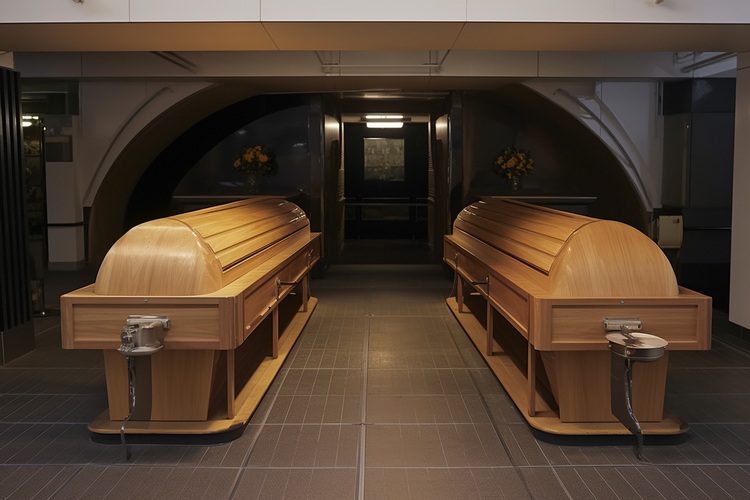Understanding Cremation Costs: A Comprehensive Pricing Guide
When planning end-of-life arrangements, understanding cremation costs is essential for making informed decisions. This guide explores the various factors that influence cremation pricing, from basic services to additional options, helping you navigate local cremation pricing with confidence and clarity during a difficult time.

Understanding the cost of cremation services can provide peace of mind during an emotionally challenging time. Cremation has become increasingly popular as an alternative to traditional burial, largely due to its affordability and simplicity. However, cremation prices vary significantly based on location, service type, and additional options selected. This article breaks down cremation costs to help you make informed decisions when exploring local cremation pricing options.
What Factors Influence Cremation Prices?
Cremation costs are determined by several key factors. The type of cremation service chosen is the primary cost determinant. Direct cremation, which involves minimal services, typically costs less than a full-service cremation that includes a viewing, ceremony, and more elaborate arrangements. Geographic location also significantly impacts pricing—urban areas generally have higher costs than rural locations due to operational expenses and market competition.
Additional factors affecting cremation pricing include the cremation container selected, whether embalming is required for viewing, memorial service arrangements, and the final disposition of remains. Crematory facility fees, transportation costs, and death certificate fees also contribute to the total expense. Understanding these variables helps explain the wide range in cremation pricing you might encounter when researching options nearby.
How Much Does Cremation Cost on Average?
The national average cost for a direct cremation ranges from $1,000 to $3,000, while a full-service cremation with viewing and ceremony typically costs between $3,000 and $6,000. Direct cremation represents the most affordable option, as it eliminates expenses associated with embalming, viewing, and formal funeral services. This basic service includes transportation of the deceased, the cremation process itself, and a simple container for the remains.
Full-service cremation costs more because it includes many traditional funeral elements such as embalming, viewing, a ceremony, and often a higher-quality urn or container. Additional services like obituary notices, flowers, memorial cards, and venue rentals for services can add several hundred to several thousand dollars to the final cost. Veterans may qualify for free cremation services through Veterans Affairs benefits, which can significantly reduce expenses for eligible families.
What’s Included in Basic Cremation Pricing?
Standard cremation pricing typically includes several fundamental services. The basic fee covers the cremation process itself, transportation of the remains to the crematory, obtaining necessary permits and death certificates, and a simple container for the cremated remains. Most cremation providers include professional staff services for coordinating arrangements and filing required paperwork as part of their basic package.
What’s often not included in basic cremation pricing are services like viewings, memorial ceremonies, higher-quality urns or containers, and additional copies of death certificates. Embalming is typically not included or required for direct cremation but becomes necessary if a viewing is planned. Some providers charge separate fees for refrigeration if there will be a delay before cremation. When comparing cremation pricing nearby, it’s important to ask for an itemized list of included services to ensure you’re making accurate comparisons between providers.
How to Find Local Cremation Pricing Information
Researching local cremation pricing begins with contacting funeral homes and cremation societies in your area. The Federal Trade Commission’s Funeral Rule requires all funeral service providers to give price information over the phone and provide itemized price lists upon in-person request. This transparency allows you to compare services and costs without pressure.
Online research has made finding cremation pricing easier than ever. Many cremation providers now list their service packages and prices on their websites. Cremation-specific service providers often offer more competitive pricing than full-service funeral homes. Consumer advocacy organizations like the Funeral Consumers Alliance provide regional price surveys that can help identify affordable options in your area. Reading online reviews can also provide insights into both the quality of service and whether the final cost aligned with the quoted price.
Are There Ways to Reduce Cremation Costs?
Several strategies can help manage cremation expenses effectively. Choosing direct cremation eliminates costs associated with embalming, viewing, and ceremonial services. You can still hold a meaningful memorial service at a later date in a non-funeral home setting, which often costs significantly less. Purchasing an urn or memorial container from a third-party retailer rather than the funeral home can save hundreds of dollars.
Pre-planning and pre-paying for cremation services can lock in current prices and protect against inflation. Many cremation societies offer membership discounts that can reduce costs by 10-15%. Veterans, their spouses, and dependents may qualify for free cremation and burial benefits through the Department of Veterans Affairs. Some counties and states also offer financial assistance programs for families who cannot afford cremation services, though eligibility requirements vary by location.
Comparison of Cremation Service Providers and Their Pricing
When evaluating cremation service providers, comparing both services and pricing helps ensure you receive the best value. Below is a comparison of typical cremation service providers and their general pricing structures:
| Provider Type | Direct Cremation | Full-Service Cremation | Notable Features |
|---|---|---|---|
| Cremation Society | $800-$1,500 | $2,500-$4,000 | Membership discounts, pre-planning options |
| Funeral Home | $1,500-$3,000 | $4,000-$7,000 | Full-service facilities, more ceremony options |
| Online Cremation Provider | $700-$1,200 | $2,000-$3,500 | Simplified process, lower overhead costs |
| Green Cremation Provider | $900-$1,800 | $2,800-$4,500 | Environmentally friendly options, biodegradable urns |
| Hospital/Medical School | $0-$500 | N/A | Body donation with cremation return option |
Prices, rates, or cost estimates mentioned in this article are based on the latest available information but may change over time. Independent research is advised before making financial decisions.
When comparing providers, consider both the base price and what’s included in each package. Some providers might advertise low base rates but add numerous fees for services that others include in their standard package. Request an itemized General Price List (GPL) from each provider to make accurate comparisons. Remember that the least expensive option may not always provide the level of service or dignity you desire for your loved one.
Conclusion
Understanding cremation prices empowers families to make financially sound decisions during an emotionally difficult time. By researching cremation pricing nearby, comparing service providers, and being aware of what’s included in basic packages, you can find options that honor your loved one while respecting your budget. Remember that pre-planning can often secure better rates and relieve family members of making difficult financial decisions during their time of grief. Whether you choose direct cremation or a more traditional service, knowing the cost factors involved helps ensure transparency throughout the process.




